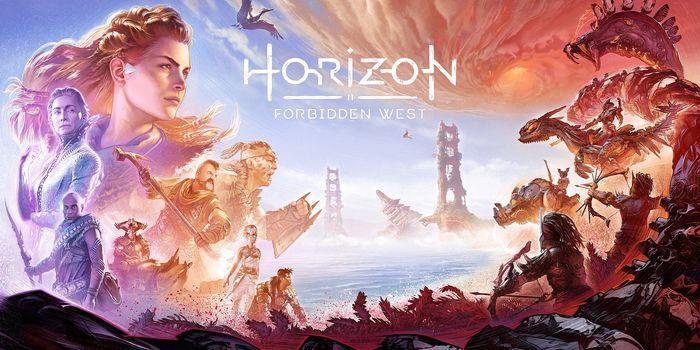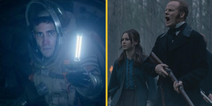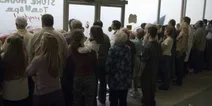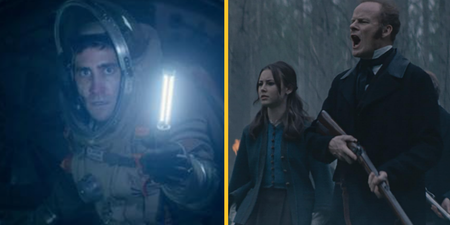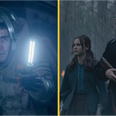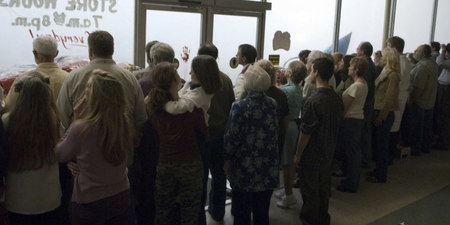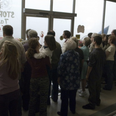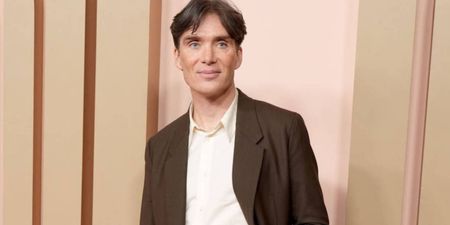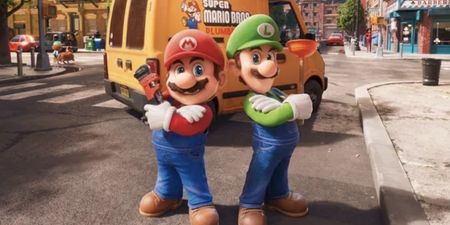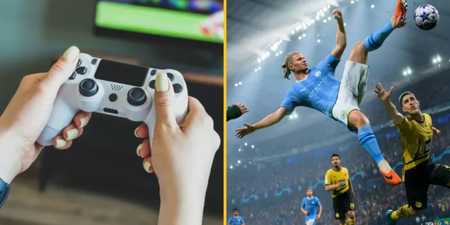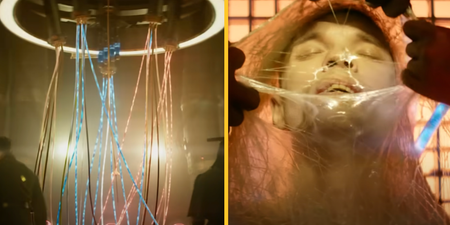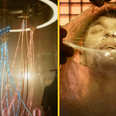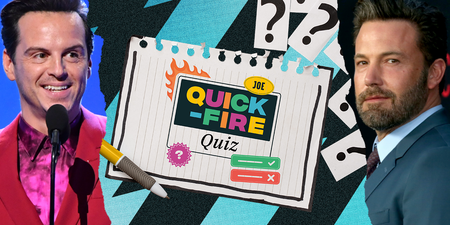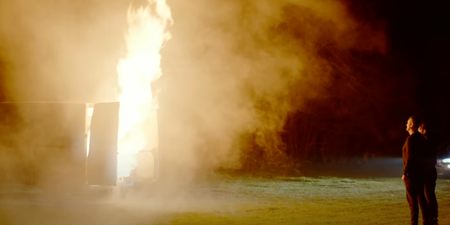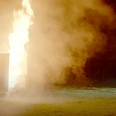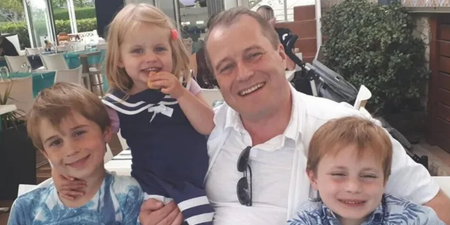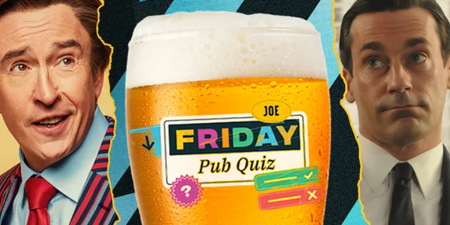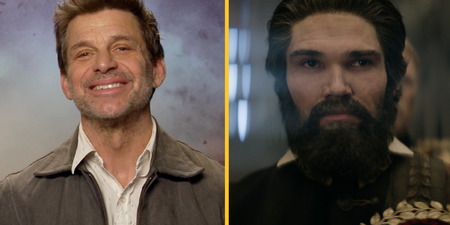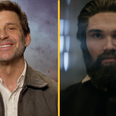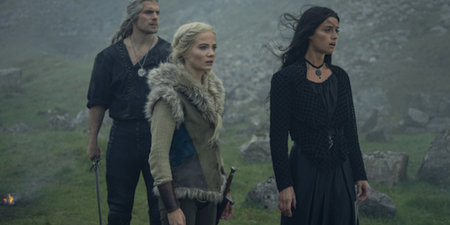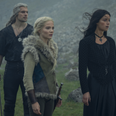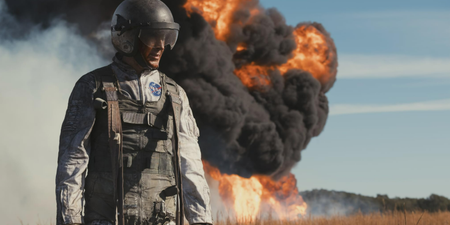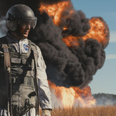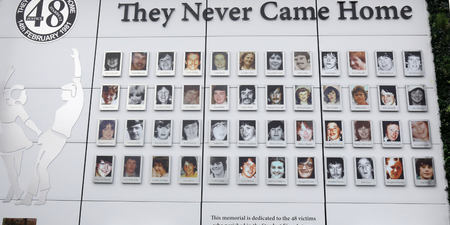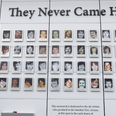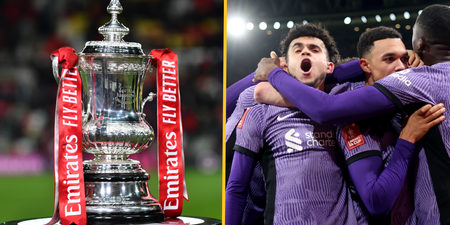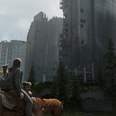They discussed everything from hidden side quests, how to make it in the world of video games, and the potential for a Hollywood adaptation.
2022’s first must-play game, Horizon: Forbidden West, arrives on PS5 and PS4 on Friday, 18 February, and you can check out our full glowing review right here.
Ahead of the game’s release, JOE chatted to Ben McCaw (Narrative Director) and Jan Bart van Beek (Studio Art Director) at Guerrilla Games about some of the key points of the huge new PlayStation tentpole release.
On the added pressure of following up Horizon: Zero Dawn, which was a surprise hit:
J.B.: “Of course, you’re exactly right, this is the second album problem! You have an unexpected hit, and of course we were hoping for a hit, but maybe I think we accidentally sort of hit it out of the ballpark. We had a lot of ideas of what to do for the second one, but still sort of measuring things that our audience is expecting.
“You know with the nervousness, can you go beyond to yourself? Can you improve or have you already hit a stalemate? I think the team works incredibly hard, they’ve upped every part of the game imaginable. I think also from Ben’s side in terms of story and execution of story, making sure everything in their game feels with the highest quality. We wanted to bring a whole new production value levels for open world games.”
Ben: “There’s intense fear when it comes to having a big success in trying to recapture the magic. What we really try to do was raise the level of quality. We listened to our reviewers, listened to our fans and [for the sidequests] we really try to improve the quality of those based on what we heard for Forbidden West.”
On stuff that players might only discover when going off the beaten path:
Ben: “Absolutely. For me, two things really stand out. Obviously, as a writer and I speak to the entire writing team, we are very invested in the data points that you find throughout the world. We try to make sure that they’re dramatic and entertaining so I highly recommend delving into those.
“And then I would also say that there are certain world activities in Horizon: Forbidden West that have a pretty good story payoff, if you stick with them. Well, they’re fun to begin with and they have a nice story hook sometimes as well but there’s also a couple of payoffs there that you might really enjoy.”
J.B.: “Yeah, I think from an artist’s point of view, we’ve created an enormous world that is also now much more traversable by climbing and other new mechanics by making major additions. Also, the entire world that we built under the water line and make it so there is a lot to explore and to find there. So I would certainly ask people to occasionally dive into the water and maybe go all the way deep down.”
On working with big Hollywood names like Carrie-Anne Moss and Angela Bassett on this sequel:
Ben: “What I would say about Carrie-Anne Moss, that’s funny you mentioned Trinity [in The Matrix], obviously she’s Trinity. She also appeared in Jessica Jones and she has amazing sci-fi cred. But for me, personally, one of the things that was infinitely reassuring about it is that she’s in Mass Effect, and she’s fantastic. So, that was really like we knew that she understood video games.
“Angela Bassett, similar thing. A lot of people might not know but she’s one of the voices in [2018 movie] Bumblebee, as one of the Decepticons. So we knew she was familiar with us a property that was similar to what we were doing. I will say, in her case we kind of pictured [her character] Regala as Angela. Like, almost immediately, it was just sort of like the perfect image for us. So that was kind of one that felt easy and logical.”
J.B.: “I think definitely compared to 15 years ago, there’s been a massive change. These younger generations of actors to some degree, they’ve grown up playing video games. So they are much more familiar with the formats and the media basically. But at the same time, gaming has come into its own as a storytelling medium and they’re very aware of that. So they’re very interested because maybe it also allows them to take on roles that they might not have been able to take anymore.
On the Horizon franchise potentially getting adapted for the big (or small) screen by Hollywood:
J.B.: “We can’t really say anything about that! We have PlayStation Productions and they are looking at all of the IP that PlayStation Studios have, to see which ones would be suited and interesting. Conversations like that have been going on for decades in that regard. But what our specific plans are is not something really to discuss yet.
“These games are long, so a long form [TV show] would be the way to go. I think just to make sure that we give these things the time to breathe.”
Ben: “I would just quickly add that I am really looking forward to seeing Uncharted and watching The Last Of Us TV show and maybe trying to take a breath after Forbidden West.”
On giving advice to anyone trying to get into the video game business:
Ben: “My advice is actually somewhat simple. It’s don’t learn to write for video games. Learn to write. Learn how to write a great scene and then write three great scenes that you can use as samples. Get feedback from people that you trust. But you don’t necessarily have to focus on video games because we’re looking for real drama with real emotion.”
J.B.: “It’s the same thing for any artist. Whether you are a character artist or concept artists or environment artist, they often talk about the ten thousand hours of constant training before you’re good at something. I think that is sort of the level of dedication that it takes.
“You need to be very self-inspired and self-driving to be able to do it at these levels. So it is finding that drive, that discipline, to really teach yourself.”
Ben: “If I could just add one final thing because I think this would translate for art and writing. So much of how you perform in the video game industry is how you take feedback. Taking feedback from multiple sources and reincorporating that into your work, that’s just essential.”
This interview has been edited for clarity.
